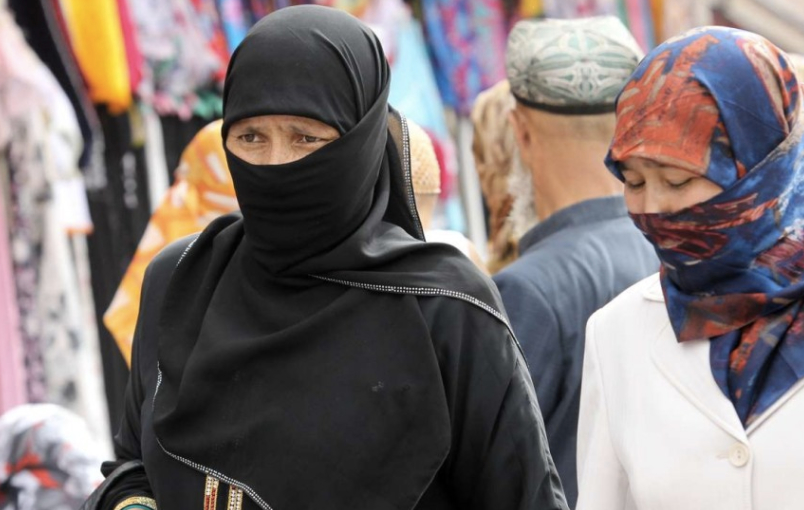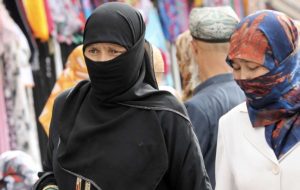Ban on beards and veils – China’s Xinjiang passes regulation to curb ‘religious extremism’

South China Morning Post, 30 March 2017

By Nectar Gan — China’s restive far-western Xinjiang region passed a new regulation on Wednesday to curb religious extremism, amid the government’s ramped-up campaign against what it calls the rising threat of terrorism and separatism.
The regulation, which will take effect on Saturday, banned a wide range of acts including wearing veils or beards the rule called “abnormal”, without specifying what makes them so, refusal to watch state television or listen to state radio, and preventing children from receiving national education, calling them “manifestations” of extremism, according to official news website News.ts.cn.
Security and surveillance measures have been beefed up in recent months following reports of heightened violence in the region’s rural south, including massive shows of force where thousands of heavily armed police paraded in a number of cities.
Beijing blames Islamist militants and separatists for violent attacks in Xinjiang that have killed hundreds of people in recent years. Rights groups claim the conflicts were caused by the government’s repression of religious freedom and unfair ethnic policies.
The regulation, passed by Xinjiang’s regional legislature’s standing committee, said special task forces to curb extremism would be set up at regional, prefectural and county governments and local leaders would be evaluated annually for their localities’ achievements on the matter.
It listed 15 items of comments or behaviour that the government views as “extremism”, covering a wide range of aspects of daily life.
According to the regulation, resorting to religious instead of legal procedures to marry or divorce or meddling in other people’s weddings, funerals and inheritance are all prohibited extremist acts.
Other actions include interfering with or sabotaging the enforcement of family planning policies, and deliberately damaging national identity cards, household registration books or the Chinese currency.
Applying the concept of Halal in non-food-related areas or using it to intervene in other people’s secular lives is also considered an extremist act, according to the regulation.
The document defines “extremism” as any comment or behaviour that promotes extreme religious ideas and rejects or interfere in normal production or people’s daily lives.

